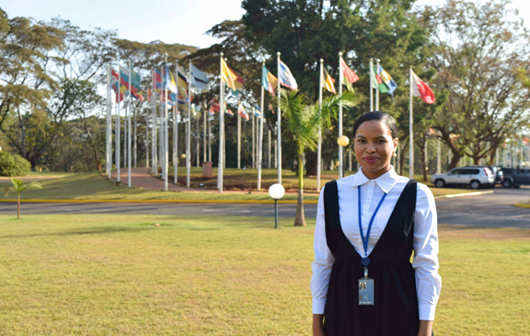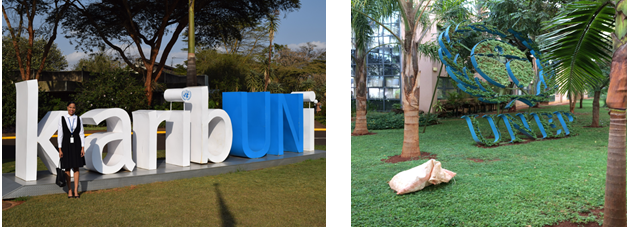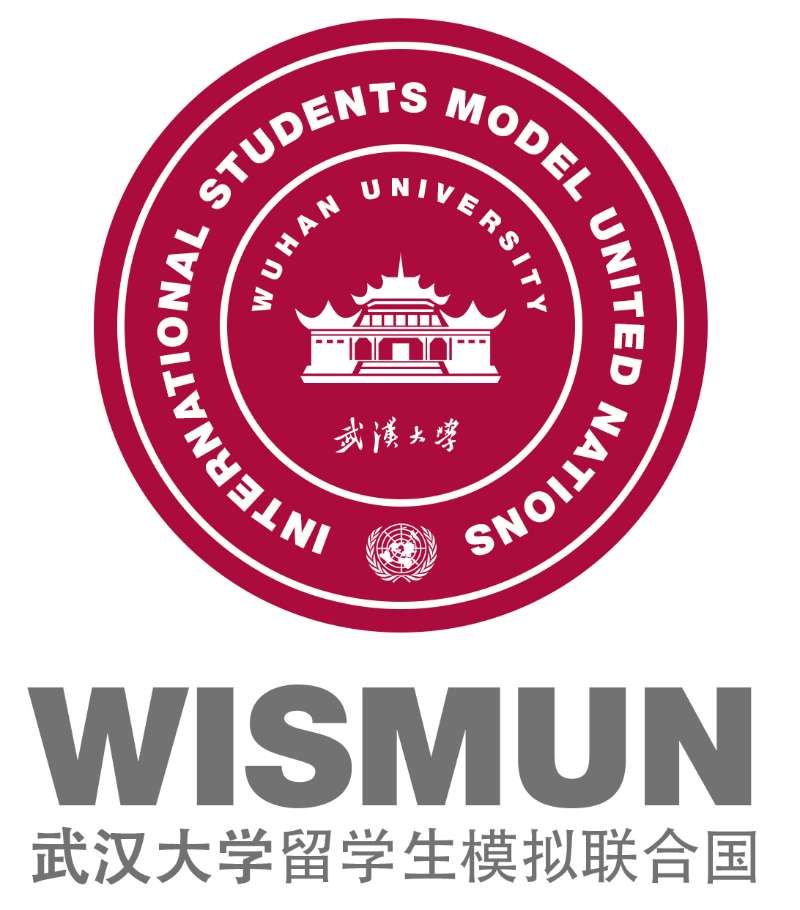
A few years ago, while creating a five-year career development plan for myself, I thought about how fascinating it would be to work with the United Nations. Granted, I was enchanted with the idea of it all, more importantly for me, was that working with the UN, would give me the opportunity to support a global cause at the highest level and widest scale, while furthering my career and academic aspirations.
Up until the latter part of 2016, this dream of mine went bitterly overlooked. Not because I didn't desire it, but because of what I perceived to be a mammoth task ahead. Fortunately, with some prodding from the team at WISMUN (Wuhan University International Students’ Model United Nations) and a perfectly timed seminar on 'How to Get an Internship at the United Nations", the idea of finding my way into the UN system, didn't seem as unattainable. I was able to better understand the process of completing my application on the UN electronic application portal; Inspira, as well as what to expect if shortlisted for an interview.
Finally, with absolutely nothing to lose, I took the plunge and applied for an internship with the headquarters of UN Environment in Nairobi, Kenya. UN Environment is the United Nations designated entity for addressing environmental issues at the global and regional level. Its mandate is to coordinate the development of environmental policy by keeping the global environment under review and bringing emerging issues to the attention of governments and the international community for action.

After many months of deafening silence, I finally received an email in May 2017 from the United Nations Office in Nairobi (UNON) informing me that I was shortlisted for an interview. I was asked several competency-based questions, ranging from my knowledge of the field of International Environmental Law, my ability to work in diverse teams, to my skills in problem-solving and communication. One week later, to my uncontrollable delight, I was recruited for the internship programme.
Everything thereafter seemed like quite the blur. I went from defending my master's thesis, to graduating two weeks later, and eventually saying goodbye to Wuhan University and to China.
Nevertheless, with the kind of exhilaration you feel when you've achieved a long-awaited goal, I made my way to Nairobi in June 2017 and began my three-month internship with the International Environmental Law Unit (ILU) of the Law Division. I remember walking through the UN's display of flags and feeling a part of something important, and intently looking to find my little island's own flag, thinking, "I too can make a contribution."
But like a well-oiled machine, things entered into full swing soon thereafter, as I was tasked with several responsibilities, ranging from proof-reading, editing and giving input on official UN Environment publications, reports and documents, carrying out research on selected environmental law and governance issues, revamping the content of UN Environment's Rule of Law webpage, assisting in the preparation of publications and other outreach materials on selected environmental law themes, to supporting the ILU on preparing and revising project concepts and documents, specifically on its Environmental Rights Initiatives. Being under the direct supervision of the Head of the ILU, I was allowed and encouraged to attend as many unit and divisional meetings as possible, as well as Briefing Sessions of the Committee of Permanent Representatives, the Secretary-General's Town-hall meetings and several 'Brown Bags'.
However, it would be mistaken of me to have you believe that my experience in Kenya was all work. Rather, my time there was quite the holistic adventure, which involved me encountering Kenya's unique culture and astounding wildlife. I visited the villages of the Maasai tribe, danced with its people and traversed the Mara in a safari minibus, where I witnessed the last vestiges of the great wildebeest migration. I fed (and even kissed) giraffes at the Giraffe Center in Nairobi, and rubbed the backs of orphaned elephants at the David Sheldrick Elephant orphanage. I haggled with art and craft-makers at flea-markets and thoroughly enjoyed the charms of Kenya's cuisine.
However, you needn't go far to plug into nature. With the Karura Forest Reserve as its backdrop, the UNON compound is an environmentalist's sanctuary. Decorated with lush greenery all around, the energy neutral building that houses the UN Environment Headquarters features solar panels, low-energy lighting illuminated workspaces, energy efficient computers, rainwater harvesting systems for fountains and ponds, water conserving lavatories and an aeration system for the treatment of sewage which is recycled to irrigate the landscaped compound.
As a native of the Caribbean, my internship with UN Environment became even more relevant when the region was hit by two monster Category 5 hurricanes in September alone. Hurricanes Irma and Maria ravaged the islands of Anguilla, Barbuda, the British Virgin Islands, St. Martin/St. Maarten, Cuba, the US Virgin Islands, St. Kitts and Nevis, the Turks and Caicos, Dominica, Puerto Rico, Guadeloupe, and the Dominican Republic; extinguishing infrastructure, livelihoods and ways of life, and thus amplifying the financial and social inequalities of small island developing states. With such clarity, it occurred to me the importance of diversity in the UN system. Not only for the sake of inclusion, but for bringing a sense of urgency to the environmental torments that form part of the daily realities of peoples from all corners of the world.
Now that my internship with UN Environment is over, I leave with a sense of expectancy, knowing that the cause to protect our planet in order to secure a more sustainable future for all does not only lay in the hands of individual champions of the earth, but is also being led and supported by an able team of environmentalists at UN Environment. Collectively, these are the people who have turned their jobs into a vocation and continue to save the Earth daily. It is through this dynamic partnership that we can even endeavor to achieve a healthier environment.
A special thanks to Professor Ben Boer, whose course in International Environmental Law reinforced my love for all things nature and whose kind recommendation was instrumental in me being afforded this opportunity. Thank you also to WISU (Wuhan University International Students Union) and WISMUN (Wuhan University International Students’ Model United Nations) for organizing such a broad range of activities last year, like the one I attended, which provided students with the opportunity to gain new knowledge and broaden their horizons. Without such events, it’s difficult to connect more profoundly with other students and develop useful professional skills.
Source: Wuhan University International Students Union & Wuhan University International Students’ Model United Nations

